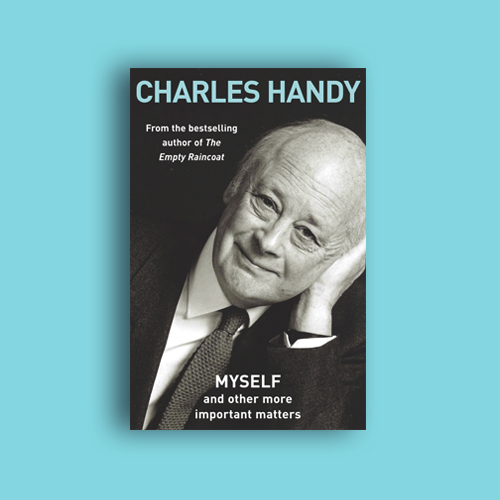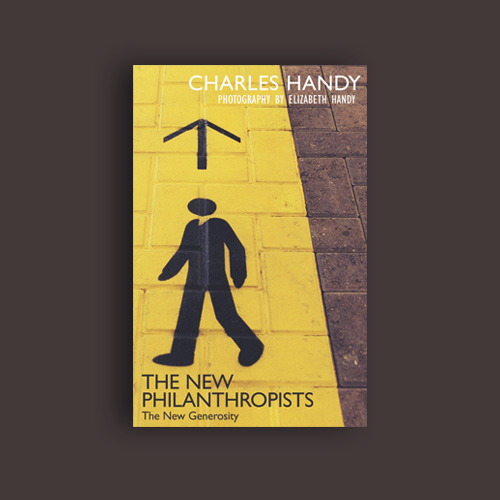ABOUT THE AUTHOR
Charles Handy
Social philosopher and author
Think of any management idea that is fashionable today and the chances are that Peter Drucker was writing about it before you were born. He has to be at the front of any list of management thinkers, the guru of gurus, as he has been called.
I knew Peter Drucker on and off for many years. He was born in Vienna four years before the start of the First World War in 1914. He was, therefore, in his 95th. year when he died in 2005. He had been around a long time, so long that much of what sounded revolutionary, even absurd, when he first said it, has now become so familiar that we take it for granted. He is credited with inventing management, for instance. Before Drucker came along management was something people did, of course, but it wasn't something that people could talk about because it hadn't been defined.
Peter Drucker's first great contribution was to focus on management as a discipline in its own right. In so doing he has been credited with changing the face of industrial America. Drucker went on to invent many of the concepts that are now part of our common language. He was suggesting that government should privatize many of its functions long before any nation actually did it. The 'profit centre' and the 'knowledge worker' were concepts first used by him. He was the first to talk of 'discontinuity' the idea that the future is going to be completely different rather than more of the same.
He invented the notion of 'management by objectives' and was writing about 'decentralization' at a time when most organizations were still behaving as if they were large country estates run by the owner. Yes, writing about it, because that is how Drucker saw himself, as a writer. He has written thirty or so books which, he said, had sold five or six million copies. Added to which there are literally hundreds of articles and essays. He was also teaching almost to the end, still talking to conferences by satellite from his Californian home and still, in his nineties, delivering two courses at the Business School named after him at Claremont University in California. "I learn by listening" he once told me, and added, "to myself". I thought he must be joking, in his quizzical way, but he was serious. He uses his books and lectures as a way to work out his ideas.
To read Peter Drucker is to be educated in more ways than one.
In fact, he was too modest, because Drucker was the nearest equivalent of a Renaissance man in the list of management gurus. He, almost alone, had what Denis Healey once called ‘hinterland’, a breadth and depth beyond his speciality. He used to set himself out to master a new topic every year and was an expert in a surprising number of fields. For many years, for instance, he lectured on Japanese Art. At heart he was really a social historian and was able to draw fascinating parallels from other ages and societies. What other management writer could slip in the fact that the word 'risk' in the original Arabic meant 'earning ones daily bread'? Or be able to mention, in passing, that the first management conference was organized in 1882 by the German Post Office -and that nobody showed up? To read Peter Drucker is to be educated in more ways than one.
Like all writers, his books are the milestones in his life. There are too many to summarize them all. They are all worth reading, and they are all readable because he takes language seriously. 'Language' he says 'is the cement that holds humanity together.' His prose has dash and excitement. He revels in surprising you. You could try any of them and learn from them, but five of them, in particular, mark the different stages of his thinking.
The first of those milestones was The Concept of the Corporation, Drucker's account of how General Motors was organized. Written in 1945, it is not much read these days, which is a pity, because it contains much wisdom. In particular, he explained, for the first time, how and why decentralization worked. He calculated that 95 per cent of all decisions in General Motors at that time were taken by the divisions, leaving only the really big ones for the centre. Drucker was keen on decentralization because of its impact on what he called Human Effort, the motivation it provided to people to work and to learn. Decentralization created small pools where people felt that their contribution mattered. Those small pools also meant that there was space for young executives to make mistakes without threatening the future of the company. They were, he said, farms for growing talent.
Ironically, General Motors didn't like the book and banned its use in the company. But the Japanese read it and learnt from it - to their great benefit. Eventually, by the mid-eighties, most of the leading companies in America had finally got the message and had decentralized. Drucker later said "People are a resource, and not a cost. The Japanese have accepted that idea and we haven't." His idea, in that book, of the 'responsible worker' was taken up by Toyota and his call for a guaranteed annual income became the basis for Japan's lifetime employment policy.
There is only one valid definition of business purpose - namely to create a customer.
– PETER F. DRUCKER
Having invented management, Drucker needed next to tell us how to do it. His book “The Effective Executive” summarizes his views very crisply. He begins at the beginning with a simple question 'What is a business?' The answer that is usually given is 'It is an organization to make a profit.' That is not only false, said, Drucker, it is irrelevant. Profit-seeking is not the purpose of management decisions but a test of whether they work. He goes on "If you want to know what a business is we have to start with its purpose, which must be found outside the business itself,... in society, in fact, since a business enterprise is an organ of society. There is only one valid definition of business purpose - namely to create a customer." This is the Drucker dictum that became best known around the world.
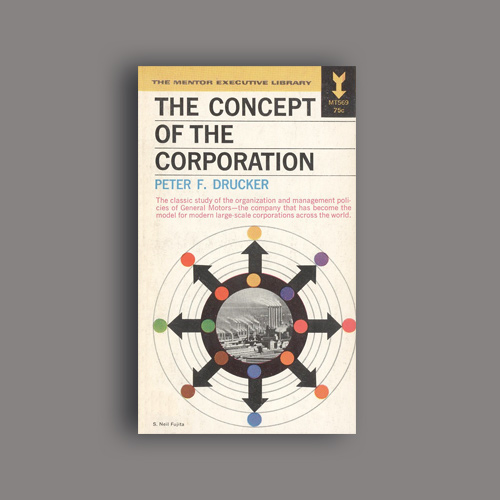
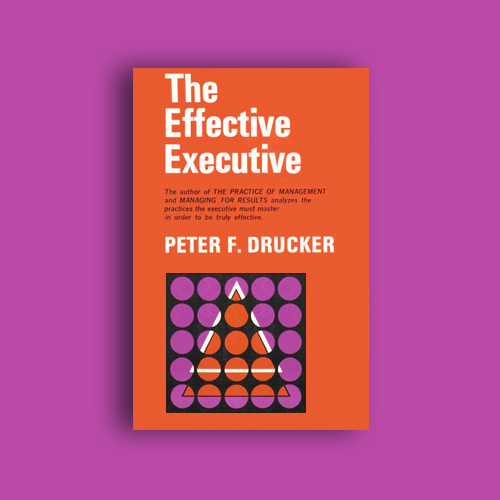
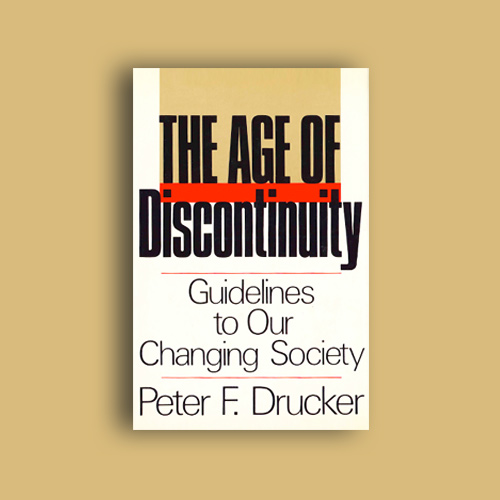
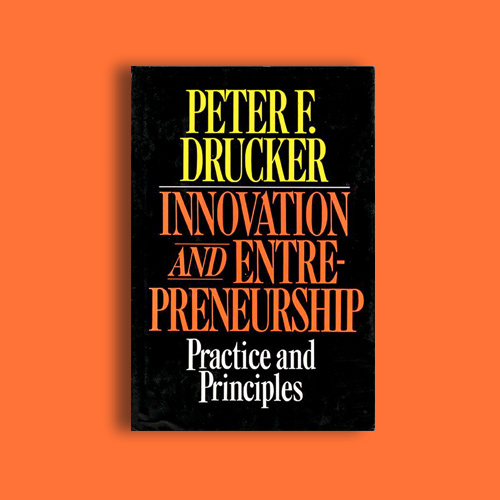
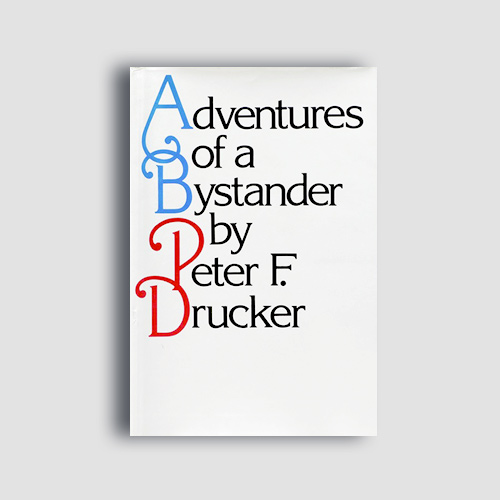
Drucker went on to get practical about the job of the manager. What kinds of things does a manager do? Drucker - who, like many gurus, is keen on lists - said that he, or nowadays she, does five things:
- A manager sets objectives - A manager organizes
- A manager motivates and communicates
- A manager, measures results
- A manager develops people, including himself.
Obvious stuff perhaps, but new then and often forgotten now. Drucker later elaborated on the setting of objectives in Managing by Results and many have considered this to be his most important contribution to management thinking. He shifted the focus of management actions away from the inputs to the outputs. It was management by results rather than management by supervision.
But...and there’s always a but, for Drucker’s thinking was never simplistic. Any idea carried too far can boomerang - bounce back in your face. Management by Objectives can turn into management by targets and quotas, with workers spending more time chasing the numbers than doing the real work. Give policemen a target of so many arrests a week and they may spend more time on parking offences rather than the real crimes. Drucker knew this. The measures had to measure what really mattered. What Drucker wanted was a workplace where workers were trusted to get on with the job without undue supervision, where they knew what was expected of them and were clear about how it would be measured and how they would be rewarded.
It was at the end of the sixties that Drucker shifted his focus from managing a business to the world outside the organization. The Age of Discontinuity was the first of a series of books on the changing shape of society and its impact on the manager of the future. That book was published in 1969 but it reads as if it was written yesterday. The shifts that Drucker glimpsed then are still reverberating today.
The first of these shifts in society was the arrival of the knowledge industries. The problem here, said Drucker, was that knowledge work needed new types of workers, people who liked new challenges, not routines. Finding them and keeping them motivated would be management's new problem. Think of graphic designers, web developers or consultants. "Knowledge workers", Drucker said "cannot be satisfied with work that is only a livelihood."
The second shift would be a move to a global economy. A global shopping centre would mean that everyone would want access to the same goods. It would, he forecast, become an age of conspicuous luxury. The global shopping centre makes brands all important. When the world is your customer you cannot afford to think locally any more. What Drucker foresaw thirty years ago is now all around us. Just think of the Internet.
Drucker's third discontinuity is a growing disenchantment with government. This worried Drucker. Never, he wrote, has strong government been more necessary in this dangerous age. Not that government should do everything. Government, he said, should legislate, regulate and provide the funds, but leave the doing to others. He called it reprivatization. It was a theme that governments everywhere picked up ten to twenty years later. It hasn't always worked that well because businesses are not accountable to the public in the same way that governments are. Privatization can mean more economic freedom for the organization but less for the individual.
In the nineteen eighties Drucker began to despair of his first love, the big corporations. He found them stuck in the past, selfcentred and over-fond of paying themselves huge salaries. He turned his attention instead to the entrepreneurs of the new industries. His book, Innovation and Entrepreneurship was published in 1985. In times of stability, he remarked, organizations need to do things better. In changing times, however, we need to do things differently. It is a jaunty book, with chapter titles like "Hit Them Where They Ain't". "But aren't new ideas risky?" he asks, "Of course innovation is risky" he answers "All economic activity is by definition high risk. And defending yesterday – in other words, not innovating – is far more risky than making tomorrow."
All very true but the entrepreneurial society has turned out to be great for those who can do it and pretty awful for those who needed the security of a large organization and have found it hard to survive without it. We have begun to see the rise of a new apartheid society, divided between the rich and the poor. To counter this, Drucker has always argued for a strong non-economic sector to make this inequality more tolerable. In his later years he has done much to boost the role of the non-profit organizations, or what he calls the 'social sector'. They, not government, he believes, are best able to deal with the social problems that a competitive capitalism throws up.
Then there is still my favourite of all his books - his Autobiography, The Adventures of a Bystander. If you want to understand Peter Drucker and the sort of man he was, read this fascinating account of his early life. Peter Drucker's work has always moved with the times, or, more accurately, has usually gone ahead of them. But there has always been a consistent thread. Asked, towards the end of his life what effect he thought his work had had he replied "... that management is so much more than exercising rank and privilege, that it is so much more than making deals. Management affects people and their lives.
Charles Handy was an oil executive, an economist and a Professor at the London Business School before starting to write on life, work and management. His latest books are Myself and Other More Important Matters and The New Philanthropists. His books have sold between one and two million copies around the world, far short of Drucker’s but, then, he says, he still has twenty years to go.
